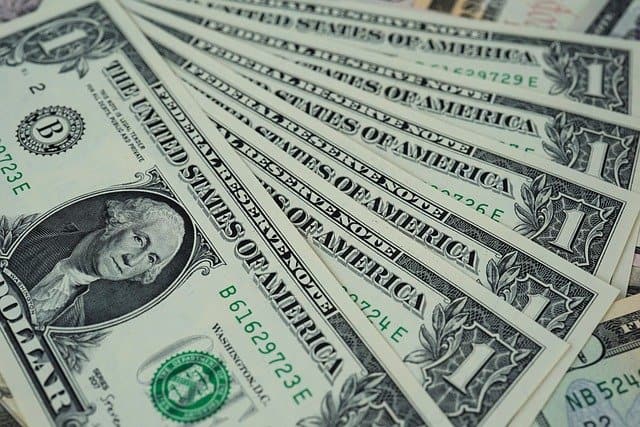The US dollar may sink as much as 35% as a consequence of the serious economic problems in the US. This collapse, combined with the pandemic and social unrest, threaten to affect Washington’s global economic leadership, warns US economist Stephen Roach.
The era of the “exorbitant privilege” of the US dollar as the world’s main reserve currency is coming to an end, as French Minister of Economy and Finance Valéry Giscard d’Estaing declared in the 1960s. He regretted 60 years ago that the United States turned freely to the rest of the world to maintain its high standard of living.
“For almost 60 years the world was complaining about it, but it did nothing about it. Those days are over,” writes the American economist Stephen Roach in his article for Bloomberg.
The quality of life in the US is about to be reduced like never before by the stress caused by the COVID-19 pandemic. Meanwhile, more and more people are questioning the world’s widely accepted perception of American exceptionalism.
More deficit than savings
“The balance of forces is changing and a fall in the dollar could be just around the corner. The seeds of this problem were sown by a deep deficit in domestic savings that was evident in the US before the pandemic,” highlights the Author.
In the first quarter of 2020, net national savings, including household, business and state savings, plummeted to 1.4% of national income. This is the lowest level recorded since the end of 2011 and constitutes one-fifth of the average of 7% reached between 1960 and 2005.
Because it lacked savings and had to invest in its economy, the US took advantage of the dollar’s role as the world’s leading reserve currency, relying heavily on surplus external savings. To achieve its goal Washington paid a high price: it has been accumulating a deficit in its current account every year since 1982.
The expansion of the pandemic and the economic crisis that it has unleashed are widening the gap between savings and the current account to a critical point. The main culprit for this situation is the increase in the US government’s budget deficit, Rouch explains.
A sharp increase in the budget deficit also leads to a growing current account deficit. Once national savings stop covering the budget deficit, any state is forced to borrow more resources abroad. It is the scenario in which the North American country is located.
According to the Congressional Budget Office, the US budget deficit is likely to skyrocket to a record 17.9% of Gross Domestic Product in 2020 and then fall back to 9.8% of GDP in 2021.
Rouch also cautions that national savings in the US may sink below zero in the future to fall between -5% and -10% of national income. This scenario would be worse than the one that took place during the global financial crisis. Between the third quarter of 2008 and the second quarter of 2010, national savings were negative for the first time in history, standing at an average of -1.8% of national income.
“And that’s where the dollar will come into play,” says the economist.
At the moment, the U.S. currency is strong enough, as it benefits from global demand and is a typical haven for investors during periods of crisis. Thus, between January and April 2020, the dollar’s exchange rate rose against that of other currencies used by US trading partners by nearly 7% in inflation-adjusted terms, according to data collected by the Bank for International Settlements.
In the future it will not matter whether the US dollar is a reserve currency or not, as it cannot be saved from unfavourable circumstances and characterized by the increase in national and budget savings deficits, Rouch writes.
As a result, the U.S. currency exchange rate may sink to unregistered lows since July 2011, weakening by 35% from other inflation-adjusted currencies, Rouch warns. Like the COVID-19 pandemic and social turmoil over racial violence, the depreciation of the “almighty dollar” threatens to cause the US to lose global economic leadership, the expert sums up, adding that “one must earn the exorbitant privilege and not take it for granted.”
